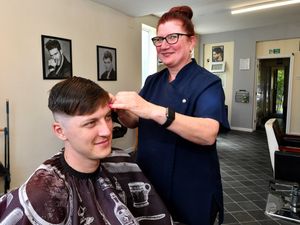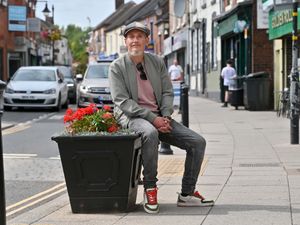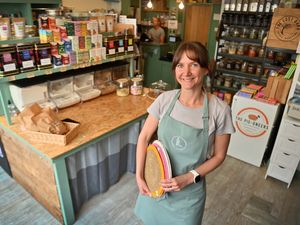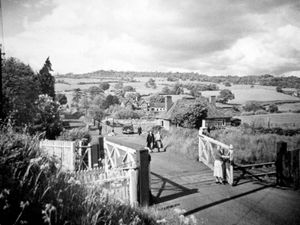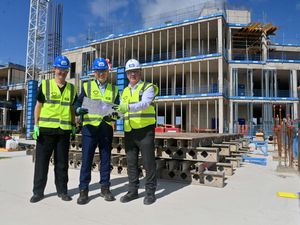Top forensic expert who helped clear the Birmingham Six, dies aged 89
In the 1950s John Lloyd found himself at a crossroads in his career. An accomplished saxophone and clarinet player, he dreamt of a career as a jazz musician. But in the end the security of a steady job at a brewery prevailed.
And there are a lot of people today who will be very glad he made the choice that he did.
Because Mr Lloyd, rose from the relatively humble beginnings of a chemist at the Mitchells & Butlers Brewery in Smethwick to become one of the country's leading forensic scientists. And it was his discovery that the traces of 'explosives' supposedly found on the Birmingham Six at the time of their arrest could actually have been caused by soap.
His bombshell discovery not only led to the acquittal of the Six some 16 years after they were jailed for life, but his skills as a forensic chemist also hoped overturn a number of other infamous miscarriages of justice.
John Lloyd, whose work played a crucial role in overturning the convictions of the Maguire Seven, Judith Ward, and Barry George, has died at his home in Oldbury aged 89.
Born in Hull, his family settled in Birmingham but was evacuated to North Yorkshire at the start of the Second World War. The family returned to the Midlands in 1944 and John became a pupil at King Edward VI Camp Hill grammar school in Birmingham. After leaving school he went to work at Mitchells & Butlers brewery in Smethwick, in 1951. While working there he met Joyce Fanthom and the couple were married in 1956.
But his son Adrian, who is himself an associate professor at Warwick University, says his father was considering a very different career at this time.
"Throughout this period, he performed as a semi-professional clarinettist and saxophonist, and at one point was serious about making a career in music," he says.
"However, he settled on chemistry, gaining an associateship of the Royal Institute of Chemistry in 1963 while at M&B.
"He then completed a PhD in organic chemistry at Aston University in 1966, and was subsequently awarded a fellowship of the Royal Institute of Chemistry in 1971."
Mr Lloyd joined the civil service as a forensic chemist in 1966, working at the Birmingham forensic laboratory. It was there where he developed analytical methods for traces of compounds left by car tyres, explosive or gunfire residues. He published more than 40 academic papers, and his work was recognised when he was awarded the degree of doctor of science by Aston University in 1983. He also contributed to international conferences, such as the International Symposium on Analysis and Detection of Explosives in Jerusalem in 1992.
"As a scientist, integrity and accuracy were of paramount importance," says Adrian.
Adrian says that towards the end of this career in the civil service, he became increasingly concerned about the reliability of forensic evidence used to convict the Birmingham Six in 1975.
"Dad became convinced that the forensic evidence used to support the conviction of the Birmingham Six was flawed," he says.
"He employed the same exacting critical faculties he had previously used in his career to re analyse the results that were presented at the trial of the Birmingham Six."
The Six – Hugh Callaghan, Patrick Joseph Hill, Gerard Hunter, Richard McIlkenny, William Power and John Walker – were each sentenced to life imprisonment in 1975 for the Birmingham pub bombings the previous November, which killed 21 people.
Crucial to their conviction was forensic evidence which said that traces of explosives were found on their hands at the time of their arrest. But Mr Lloyd was not convinced, and demonstrated that the substances identified as explosives could actually have been left by soap
Their convictions were quashed in April 1991.
Mr Lloyd retired shortly after their acquittal, but continued to contribute as a consultant to appeals of further miscarriages of justice.
These included those concerning the Maguire family – husband and wife Anne and Patrick Maguire, their sons Patrick and Vincent, Anne's brother Sean Smyth, her brother-in-law Patrick Giuseppe Conlon and family friend Patrick O'Neill – who were all jailed for supplying explosives used in the 1974 Guildford pub bombings. Their convictions were quashed in 1991.
He also gave evidence in the appeal of Judith Ward, who was handed concurrent life sentences for 12 counts of murder relating to the M62 IRA coach bombing in 1974, but was cleared in 1992.
He was also involved in the appeal of Barry George, whose conviction for the 1999 murder of television presenter Jill Dando was overturned in 2007.
Mr Lloyd was also called as an expert witness during the Bloody Sunday inquiry, ordered by former prime minister Tony Blair in 1998, and also gave evidence for the defence of Oklahoma bomber Timothy McVeigh, and the perpetrators of the 1993 bombing of the World Trade Centre in New York. He also appeared as an expert in the use of forensic evidence in the BBC's Panorama programme.
He was appointed an OBE in 1990 for his contribution to forensic science, although he was always modest about his achievements.
"We discovered the insignia he received for his OBE in his wardrobe," says Adrian.
During his retirement he became chairman of the Friends of Barnford Park near his home, and in 1999 helped secure a £4,500 lottery grant towards the cost or renovation work. The work of the Friends also featured on the ITV series A Year of Promise.
"He found time for family as well as science, and continued his interests in music – he would often regale us with Summertime on the clarinet – ornithology and fly fishing. His wife Joyce died in 2011, after developing Alzheimer's disease, and Mr Lloyd cared for her during her final years.
Mr Lloyd died at his home in Moat Road, Oldbury on March 6 after suffering a heart attack. He is survived by son Adrian, daughter Bryony, and grandchildren, Megan, Antonia and Evan.

